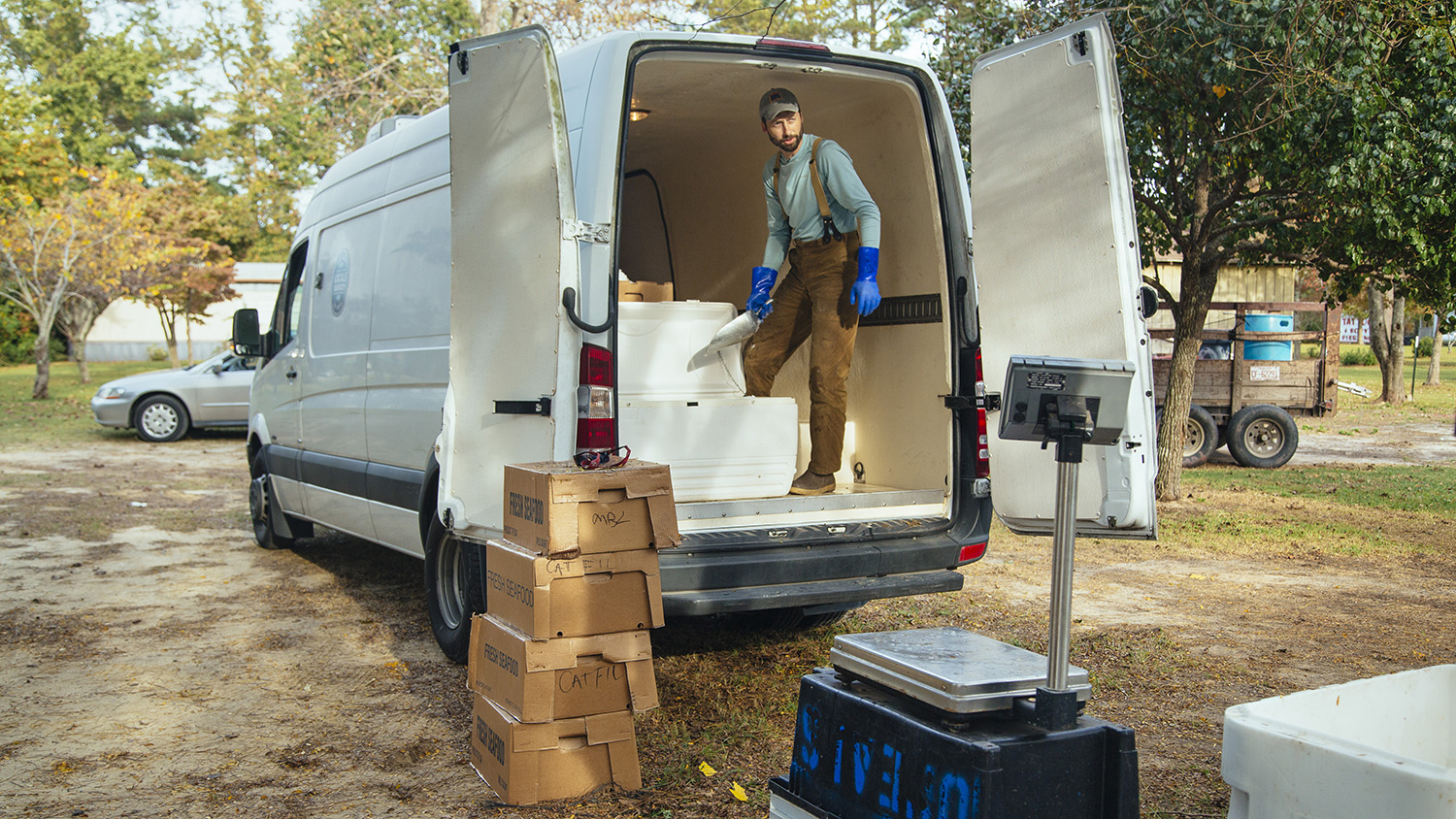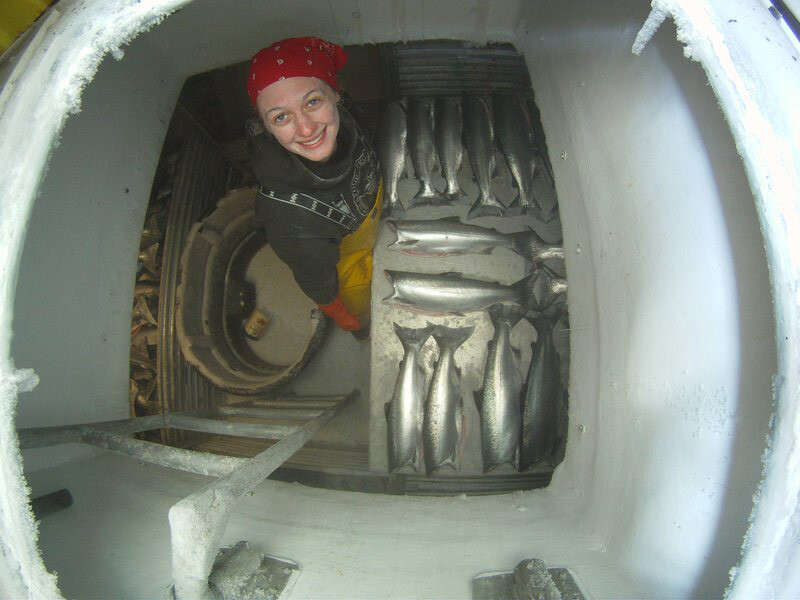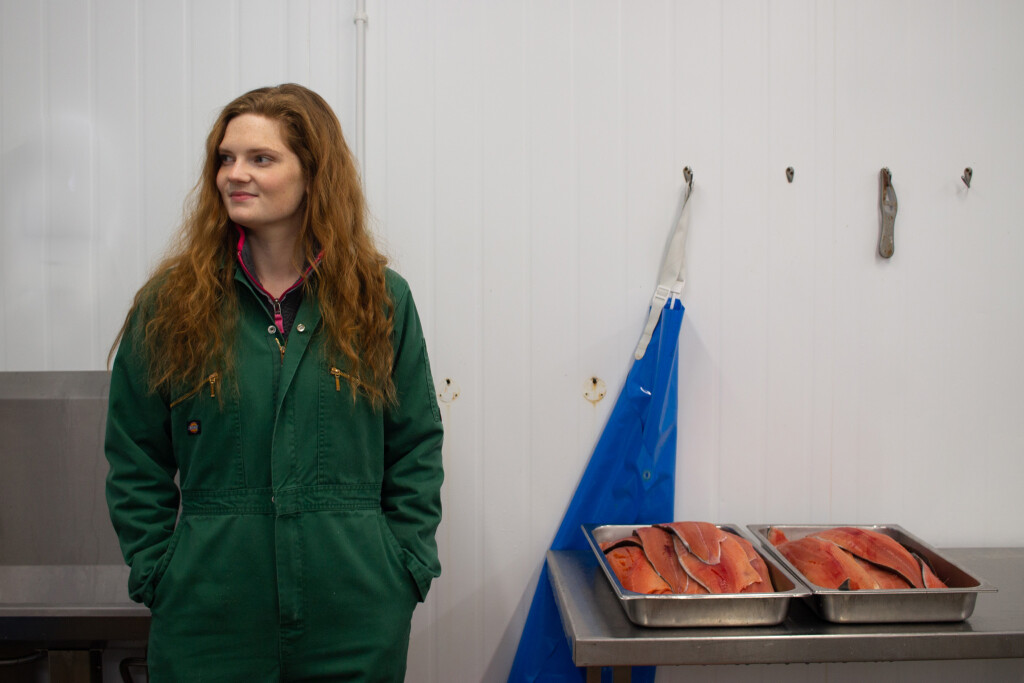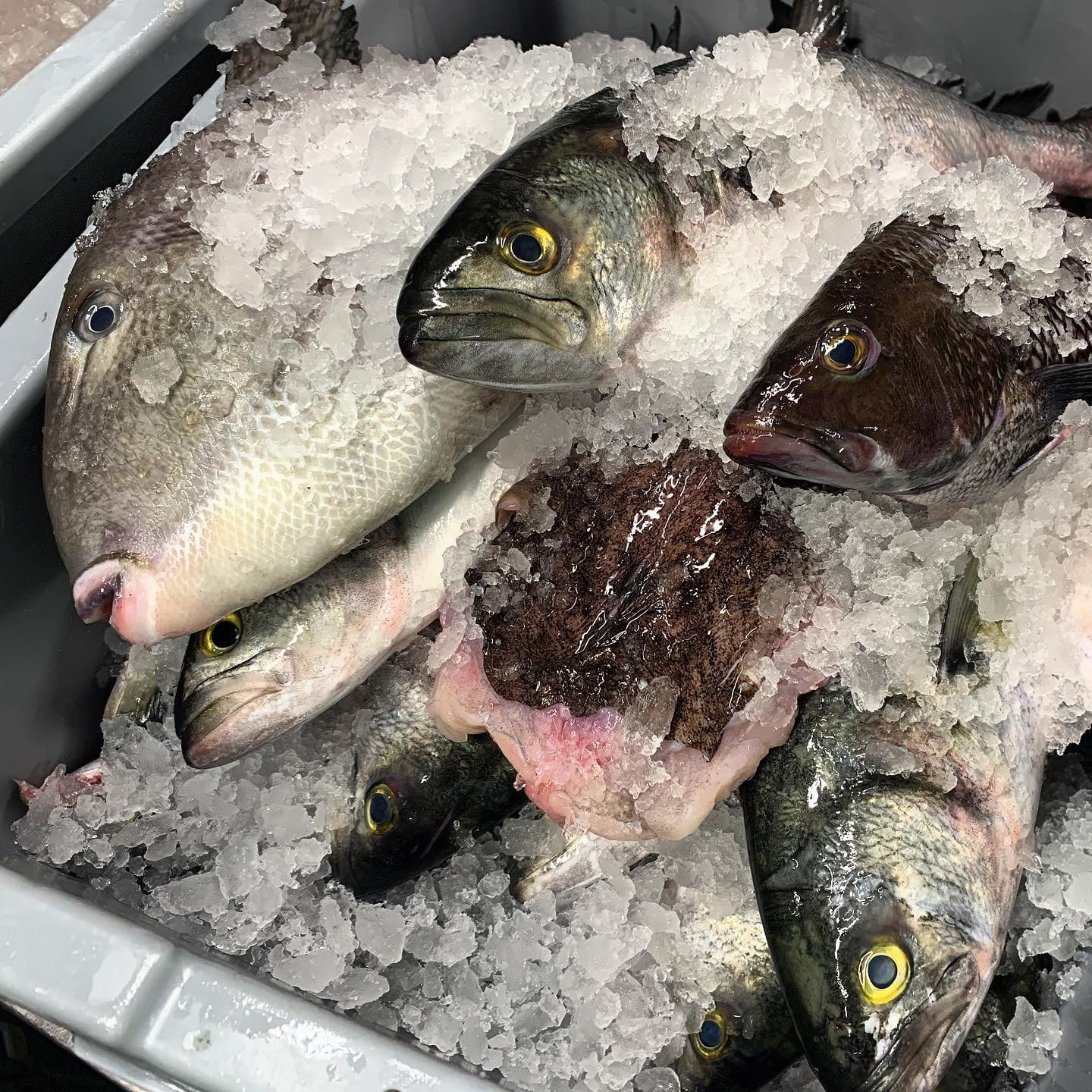I was driving to Rhode Island on a February night in 1984 with a thousand pounds of Maine shrimp sliding around in the back of my Chevy van — some of it having been picked in a friend’s kitchen. I’d blown a fuse and without a spare, I had to choose between the heater and music. I zipped up my Carhartts and plugged in Howlin’ Wolf. No chance the snow I had shoveled onto the totes was going to melt.
That would never happen today. Aside from the Maine shrimp season being on perpetual pause, the markets now demand HACCP processing and traceable supply chains. Ryan Speckman, who started Locals Seafood in Raleigh, N.C., in 2011, has both. He now sells around 4,000 pounds of seafood every week. While he and his partners had plans for expansion, the coronavirus changed everything.
“It kind of forced our hand,” says Speckman. “We had plans for a 13,000-square-foot processing facility. We’re still going ahead with that. But in the meantime, we turned our oyster bar into a production kitchen and started doing value added.”

According to Speckman, prior to the pandemic, 80 percent of his business was restaurants, and 20 percent direct marketing. But in the past year, he has seen direct sales jump 61 percent.
“We were playing at it before, and very inefficient,” he says. “This year, we launched a subscription service and increased our farmer’s market sales.” Speckman has three Mercedes Sprinter vans and a box truck that bring tuna, striped bass, summer flounder, black sea bass, tilefish and other species to Raleigh. “We make crab cakes, tuna burgers, our chef Eric Montagne developed a bloodline burger.”
Speckman is freezing and vacuum packing portions, and is getting an Electrolux freezer to increase production efficiency.
“If we want to go retail, we need a more robust facility,” he says. Besides the freezer, Speckman is using a matching grant to buy an Electrolux combination oven and smoker, to move ahead with his bigger production kitchen.
He plans to focus on quality, with a fleet of new trucks and a speedy supply chain. It’s all about getting a fish on someone’s plate in less that 24 hours. “That’s what our customers are concerned about,” he says.
Speckman is getting his trucks from Emerald Transportation Solutions in Fayetteville, Ga. Emerald sells a variety of packages built on Ford, GM, Dodge Ram, Nissan and Mercedes vans and trucks. The company offers buyers the opportunity to put together refrigeration and truck combinations that suit their specific needs, or choose from an inventory that ranges from a $35,000 Nissan NV200 to an $89,000 Ram 5500.
Among the truck suppliers for the seafood business, Bush Refrigerated Vans in Ohio has carved out a niche nationally and is sending small refrigerated trucks to small-scale fishmongers on every coast.
“The Food Safety Modernization Act of 2019, really opened things up for us,” says Steve Mullin, VP of marketing for Bush Refrigerated Vans. Among other things the act requires that shippers provide written specifications to the carrier regarding required temperature controls for the food being transported.
“Our temperature control systems let the user prove they maintain a specific temperature during delivery,” says Mullin. “Some companies won’t accept products if they don’t have that.”
Bush has focused on the seafood industry, and the company’s website sports a photo of a quintessential Maine fishing harbor.
“We go to the seafood shows,” says Mullin. “We’re focused on the small commercial segment.” According to Mullin, the Ford Transit Van is very popular, and the Mercedes Sprinter vans, as well as Dodge and Nissan, and all are usually equipped with an appropriate sized Thermo-King refrigeration unit.
“Our price points are reasonable, and we offer a lease-to-own option,” he says.
In February 2021, Bush opened a new 15,000-square-foot production facility. “We are looking at the final mile-home delivery — that market is blowing up right now,” says Mullin.
Heather Sears, owner of Princess Seafood, a combination restaurant, fish market, and wholesaler in Fort Bragg, Calif., is operating at a scale small enough to be exempted from transport requirements.

“We just put the fish in the truck with ice,” she says. Sears owns and operates her own vessel, the 44-foot F/V Princess, and sells all she can catch through Princess Seafood. “We sell local crab, blackcod, rockfish,” Sears says, noting that her all-women team fillets the local fish at an inspected facility that is part of the market. “We have some ladies here who work on the boat and in the market. When customers ask who caught the fish, they just raise their hands.”
The Princess fishes for albacore and salmon. “We pressure bleed all our fish,” says Sears. “Everyone is doing that now.”
She has a flash freezer onboard and can freeze up to 8 tons of albacore. “Not as much salmon because we have to glaze them and we need room to work.”
Sears freezes her fish down to minus 30 or 40 degrees, temperatures that lead to the thawed fish being virtually indistinguishable from fresh-out-of-the-water fish.
Sears notes that many fishermen have sold out, and sold quota out of the community.
“We lost access to those fish, and we’ve lost infrastructure,” she says. “Then there’s a lot of guys who sell to the live market in San Francisco. They can get five times as much as we can pay, so I gotta fight for what’s left.” Sears also buys fillets from processors and dragger fleets farther north, as well as frozen scallops from the East Coast. “They’re great,” she says. “My customers love them.”
On the other side of the pond, Caroline Bennett, owner of Sole of Discretion, in London, and Wim Vesterden, owner of Pintafish, in Brussels, are buying Alaska salmon and selling it in England and northern Europe, competing with the glut of farmed salmon coming out of Norway.
“Wim initially bought a pallet, and they shipped it by air, just to see how it would work,” says Bennett. “Now we have 8 tons coming on a ship, this one,” she says, sending a vessel finder link to the M/V NYK Meteor, a 980-foot Japanese-owned, Panamanian-flagged containership carrying salmon from small-boat salmon fisheries in Alaska to boutique fish markets in England and Europe.
“Without Alaska salmon, my business would be tanked,” says Bennett. “I bet I sell 20 salmon to every one local pollock. People here want to eat salmon.”
Pre-Brexit, Vesterden and Bennett were taking delivery in Liverpool and trans-shipping to the continent.
“Wim was doing me a favor, but after Brexit the last shipment was stuck with paperwork. So now the shipment will go to Rotterdam or Antwerp.”
The duo is getting Bristol Bay sockeye from Popsie Fish Co. in Homer, Alaska; chum and pinks from Northline, in Sitka; and kings from Yakobi Fisheries in Pelican.

“We get them headed and gutted,” says Bennett. “I have three to nine people working in Plymouth, and I have to keep them busy even when the weather is bad. I can’t just say, oh well, no fish, stay home today. So, when the local boats can’t get out, we process the salmon. We just look at the weather, and if it’s bad, we start thawing. It’s really great that we can rely on this really well-frozen product from Alaska.”
Most of the frozen fish coming out of Alaska is not salmon, however, but pollock, processed by large-scale freezer-trawlers with a total allowable catch of 1.42 million metric tons in 2020. But according to Tom Kay, general manager of Kami Tech, a Seattle supplier of fish processing equipment, not a lot has changed in at-sea processing in recent years.
“The products and basic processes are basically the same,” says Kay, who started processing fish in the 1980s. What has changed is the speed. “I was on the American Empress in 1984 when we broke a record by processing more than 100 tons in a day. Now, there’s a Glacier Fisheries boat, the Alaska Ocean, that processes as much as 300 tons a day. If you were running a boat nowadays and processed 100 tons in a day you’d be getting a phone call from the office asking what’s wrong.” According to Kay, the catcher processors upgraded about 15 years ago. “They realized there was incredible value in the meal and oil, and they invested in creating those products.” Since then, he points out, innovations have been incremental.
From trucks carrying hand-cut fish in ice, as has been done for decades, to automated microprocessing to 1,000-foot ships with half-containers of salmon, seafood continues to move around the world. While products like surimi and fish blocks travel along traditional channels, innovators are finding niches for other species, and adapting processing and supply chains to fast-changing markets.







